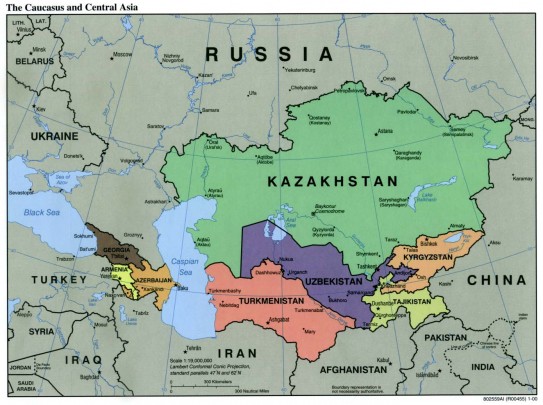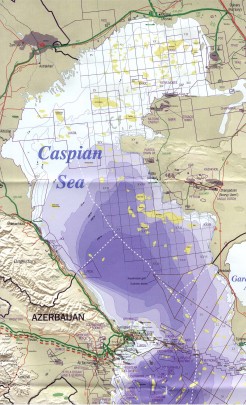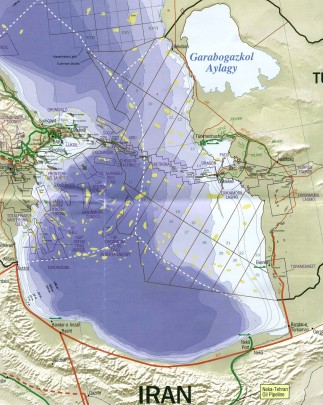

The Increased Strategic Importance of the Black Sea in the Wake of the Ukrainian Crisis.3.

Continua l’analisi dell’importanza strategica del Mar Nero nell’ambito della crisi dell’Ucraina.
Il Direttore scientifico: Maria Gabriella Pasqualini
Influence of the strategic situations in the Black Sea on Turkey’s political and military behavior towards NATO and the West
Turkey’s overall strategic response will also depend on the future viability of the Ukrainian state. Were it to be stripped of its access to the Black Sea, Turkey would be forced to take a firmer stand with Russia, for obvious defensive reasons ensuing from a major shift in the balance of power in favor of Russia. It would then reassess and reassert its cooperation policies with NATO, renewing in this way its strong commitment to the North Atlantic Alliance[i]. Moscow’s support of Armenia’s position over the historical problem of the Armenian genocide could also constitute an exacerbation between Moscow and Ankara and lead to a deterioration of relations between the two nations, potentially damaging Russia’s image in the Muslim world in general and especially in mostly Sunni and Turkic Central Asia. It would be one of the decisive factors determining Ankara’s behavior in the event of a conflict in the Black Sea with Russia. The country would be prompted to loosen its strict control over the Turkish Straits granted by the Montreux Convention and allow a broader participation of NATO naval forces in the Black Sea. This could be one of the most important issues prompting Turkey towards a greater cooperation with NATO. Other important issues at the core of the trade-off between Ankara’s political demands towards the West and NATO for unequivocal political and military cooperation in the standoff against Russia could also include an easier accession process to the EU and acceptance by the West of the substantial loosening and infringement of democratic rights and procedures in Turkey, especially against Kurdish minority activists, opposition leaders and the free press.
3.The Black Sea as energy transportation route
The Black Sea is at the center of the world’s energy trade, being a waterway connection between Europe and the Caspian region, Central Asia and China. This fact alone makes it one of the most important waterways in the Eurasian region, where producers and consumers of energy ultimately meet. If this trade were to be abruptly disrupted, or simply suspended, there would be very serious consequences on the world economy[ii]. Inflation, a severe slump in industrial production, social crises in most European countries and hence serious damage to world trade as a whole, entailing a slump in the growth of the world economy, but with certain regions, including Western Europe and the US, more strongly affected. The blackmail potential offered by a disruption of the energy trade is necessarily strong and gives great political leverage and profits to the power that possesses this weapon capable of influencing the economies of other countries and consequently their social and political stability. Here I shall try to analyze the case of the power of interdiction of Russian military forces against the energy trade in the Black Sea and the possible political or military answers, before going on to analyze the possible solutions and alternative land routes for the Black Sea energy trade.
3.1. The control of oil flows through the Black Sea as one of Russia’s main strategic goals
The main goal of Russia’s moves is the control of oil through the Black Sea[iii]. Other issues, such as maintaining Ukraine within Russia’s political and economic sphere of influence, keeping NATO away from its borders, and the federalization of Ukraine are also undoubtedly very important, but the main issue at stake in this new edition of the “zero sum game” of Soviet legacy is the control of oil passing through the Black Sea. As a direct clash between Russia and NATO in the Black Sea is not at the moment likely or foreseeable, Russia could make a prevailing use of “regional crises” with Ukraine or Georgia to impair or diminish the oil flow to Western markets. This would damage Western economies and achieve a surge of oil prices, something highly beneficial to Russian oil exports and to Putin’s personal popularity. From the Russian point of view, this policy has the advantage of increasing Russian advantage on oil production and oil flow through the Black Sea and selling its own oil production at higher prices on the world market, while at the same time lessening the danger of an outright confrontation between Russia and NATO. To avoid a military confrontation with Russia or a disruption of oil and gas supplies to Europe and the West in general, it is therefore necessary to find and implement new routes and solutions that will circumvent Black Sea transport routes.
3.2. Possible oil routes circumventing the Black Sea and avoiding Russian territory
Which viable routes can then be found to avoid both Russian territory and any Russian-prompted regional conflicts such as the one in Georgia? The latter country appears quite at risk, or at least rather vulnerable to outside pressures, being a transit country for the gas and oil from the Caspian Sea. This is due to the presence of the enclaves of South Ossetia and Abkhazia encroached in its territory. These areas are both still nominally part of Georgian territory but are in fact under Russian control. It is therefore within Russia’s power to disrupt gas and oil production through Georgia by starting a regional conflict or military skirmish in order to increase its pressure or leverage on oil and gas consuming countries if it deems it advantageous to do so. Alternatively, it could limit itself to implementing Georgian coastal seashore denial through a navy blockade from Abkhazia, for instance with ships suitable for landing seaborne troops such as the French-built “Mistral”, which ultimately will not be delivered by France to Russia for expediency reasons.
3.3. Iran: a possible oil and gas transit country
Being this the state of affairs, the only technically feasible solution would be the land route through Iran and Turkey. Both countries are sufficiently independent and can withstand Russian political, military or economic pressures, as long as the West heeds to some of their political demands and finds a convenient agreement, which is not always an easy task. Let us briefly analyze the political and economic issues at stake with both Turkey and Iran. Regarding the latter, at the end of the Cold War and of the bipolar system, relations between Russia and Iran took on a less ideological tone and more of an economic and geopolitical one. It is the principle of “the enemy of my enemy is my friend” (in this case with the US in the role of the common geopolitical adversary) that makes Iran a geopolitically convenient ally for Russia. An alliance based not only on ideological reasons, on the challenge to Western, and above all US, hegemony in the Middle East, but one also fueled by healthy interregional exchanges, concerning mainly the importing of Russian weapons and non-military nuclear technology. It is evident that a softening of relations between the USA and Iran, which has actually been the case since mid-June 2014 with the removal of sanctions, represents a serious peril for Russia. It would reintegrate the country into the core of the world economy, with a consequent lowering of the price of crude oil at an international level, and make cooperation with Russia less crucial. The country could also become an optimal route for energy from Caspian Sea and Central Asia towards Europe and from the Persian Gulf towards China, a perspective that the United States are obviously not keen on, but that would make Russian energy routes towards the West more or less redundant. Russia would of course go to any lengths to avoid a rapprochement between the United States and Iran. The transformation of Iran from a state at the fringes of the international community, the Western one at least, to one fully integrated within it, with all the evidently positive consequences for the country of this status change, would represent a very serious blow for Russia. The reintegration of Iran within the international community would also open the way to a range of possibilities, from economic ones – the opening up of Iran as transit territory for pipelines and the opportunity to export more crude oil and hence cause a lowering of oil prices on the world market – to those concerning the most burning political issues. Among the latter, we can consider the resolution of the Israeli-Palestinian conflict, a pacification in Afghanistan, where the growth of Al-Qaeda would represent a danger both for the West and for Russia and Iran. Iran also has a strong influence in Iraq and could paradoxically reveal itself as a precious ally for the West, in particular against the dangerous Sunni extremists of Al Qaeda and ISIS, enemies of both Iran and the United States. Substantially, the abolition of sanctions against Iran would bring several important benefits to the world economy and international policy. Sanctions reduced the country’s oil exports by up to 40% but, predictably, once it is again legitimized to operate it will be able to make its voice heard in the international community. This new rapprochement between the West and Iran, however, will most probably not change or challenge the present Russian-Iranian cooperation in maintaining the legal status quo in the Caspian Sea signed by the Soviet Union and Iran in 1921 and 1940. However, the unsettled issue of the legal status of the Caspian Sea will substantially diminish Iran’s capability of building new routes through its territory from and to the riparian states of the Caspian Sea to guarantee the transport of oil and gas to the Western markets. Other regions of Iran, however, are completely free from the constraints of the legal regime of the Caspian Sea.
3.4. Turkey
Turkey has the technical capability and political will to implement the passage of pipelines through its territory in its own right, thus making it a crucial partner and hub for Europe and the West’s energy security. This would increase Turkey’s leverage on Europe and the West in general, forcing energy consuming countries to take into account its increased importance in the energy sector and consequently its potential political demands. As Georgia remains highly vulnerable to Russian attacks under all kinds of pretexts, one possible technical solution for the transport of oil and gas to Europe and the US could be transit through Iran and then Turkey, a country that generally supports cooperation with Iran. This does not mean, however, that the project will always be technically and, above all, politically viable or feasible. This because resistances to an early comeback of Iran on the international stage before the nuclear agreement comes into full being in 2015 may soon emerge in the US Congress or even in Russia – which is not interested in the full reintegration of Iran within the international community for both political and economic reasons. The transport route through the two above-mentioned countries would therefore be the most secure from the military point of view, as Russia is not in the position to wage regional or hybrid wars against large well-armed states like Turkey or Iran. Other considerations should be made concerning the technical feasibility of transport routes through Iran and Turkey, and above all their political expediency.
[i] https://www.stratfor.com/analysis/russia-weakens-turkey-grows-assertive
[ii] http://www.diplomaatia.ee/en/article/russia-and-maritime-flows-in-the-black-and-baltic-seas/
[iii] http://www.gce.unisg.ch/~/media/internet/content/dateien/instituteundcenters/gce/euxeinos/euxeinos%2018_2015.pdf
www.osservatorioanalitico.com – Riproduzione riservata



Commenti recenti